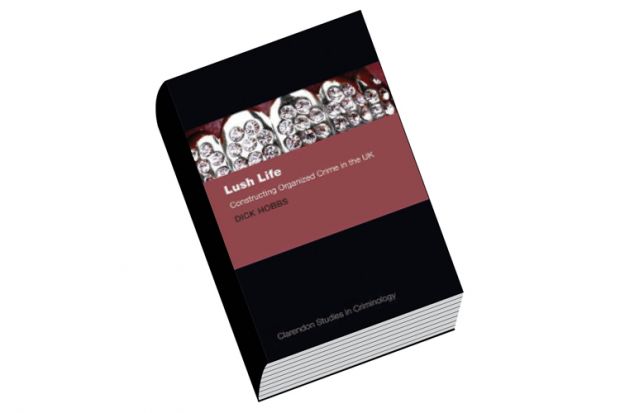There are few aspects of the contemporary world that have been subject to such sustained mythologisation as organised crime. The glamorised gangster narratives of Hollywood and Hong Kong and the cynical, misguided alien- conspiracy theories of politicians stand in contrast to a more plural, but in many ways banal, reality.
These renditions of organised crime are premised on the fallacy that it exists somewhere beyond civil society. This is the organised crime of sharp suits, made men, Bond villains and beautiful but mute women lounging by swimming pools. They offer fantasies for the post-Cold War world rooted somewhere in the certainties of the late 20th century.
Dick Hobbs’ career in organised crime, if I can put it that way, offers a powerful counter-narrative that locates its subject in its socio-economic context and reads it through a sustained ethnographic engagement. Hobbs has been busting myths about organised crime since the 1980s, when his first book, Doing the Business: Entrepreneurship, the Working Class, and Detectives in the East End of London, appeared. His latest work continues that endeavour and offers a richly textured picture of the post-industrial illegal economy.
Lush Life is set in Dogtown, a series of overlapping neighbourhoods in East London, and its suburban hinterlands. Its empirical foundations are a series of interviews with a diverse cast of players from the area’s grey and black economies. However, implicit throughout is an insider’s understanding of how things work in these worlds that derives from Hobbs’ growing up on these very streets and his long academic immersion in Dogtown’s milieux.
The book is about the business of organised crime, of robbery, smuggling, counterfeiting and corruption, and of the roles of violence and rumour in ordering these activities. But equally it reveals an analytical scepticism of the ways in which the concept of organised crime has been constructed and deployed in political and policing circles. Hobbs unpicks a mode of governance that has corralled a host of ills embedded across late capitalist society and attributed them exclusively to the activities of a few specific groups: immigrant communities, “feral” youths and the fractured remnants of the white working class, all trying to forge a living in the wastelands of modern urban Britain.
Ultimately, the construction of organised crime emerges as a way of obfuscating the inherent ravages of chaotic post-industrial capitalism. The villains in Lush Life aren’t Jason the cigarette smuggler, Benny the hijacker or Norman the dog-killer, but neoliberalism and the damaging impulses it unleashes.
Hobbs deploys the empirical richness of his material in theoretically sophisticated ways. He is, for example, critical of the emptiness of the academic rhetoric of global crime that both glamorises and exaggerates the mundane realities of organised criminal activity. Few academics have penetrated the illegal economy in the way that Hobbs has, and in failing to do so, they tend to produce abstract, overly rationalised accounts.
Yes, illegal trades constitute significant elements of contemporary globalisation. However, they are not disembodied flows imbued with some kind of voodoo power. They are messy networks grounded in the everyday realities of places such as Dogtown. They can only really be understood as such. A surfeit of graphs, maps, tables and charts offer only limited illumination.
Within the literature of organised crime this is undoubtedly an important book. It reminds us that while we may think we know plenty about organised crime, we actually know very little of a world that is all around us and to which we are all, in some way, connected. And finally, the joke that opens the book is almost worth the cover price alone.
Tim Hall is principal lecturer in geography and social sciences, University of Gloucestershire.
Lush Life: Constructing Organized Crime in the UK
By Dick Hobbs
Oxford University Press, 328pp, £65.00
ISBN 9780199668281
Published 10 January 2013
Register to continue
Why register?
- Registration is free and only takes a moment
- Once registered, you can read 3 articles a month
- Sign up for our newsletter
Subscribe
Or subscribe for unlimited access to:
- Unlimited access to news, views, insights & reviews
- Digital editions
- Digital access to THE’s university and college rankings analysis
Already registered or a current subscriber? Login




